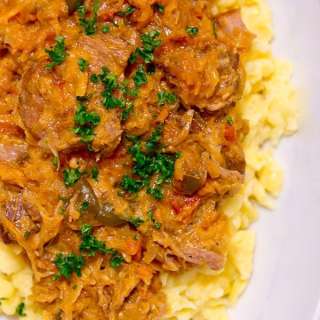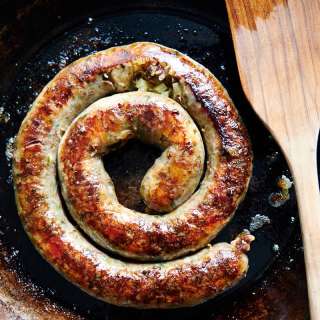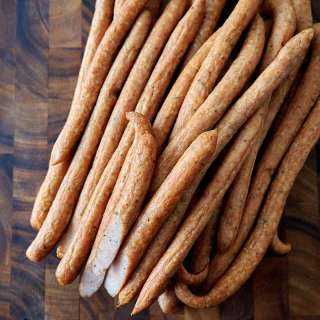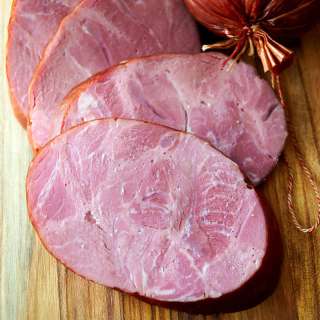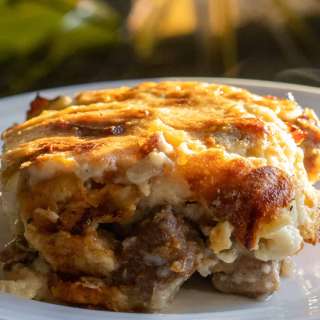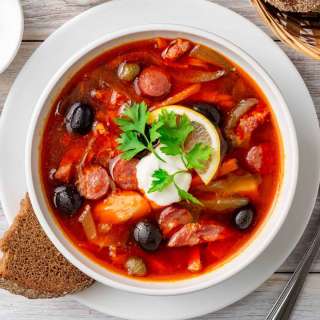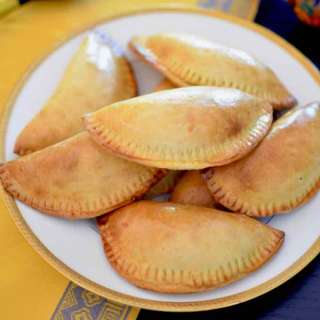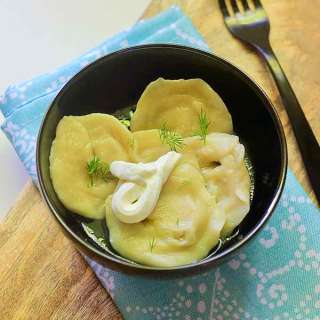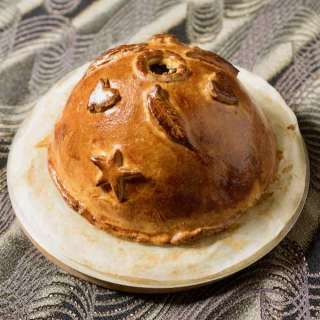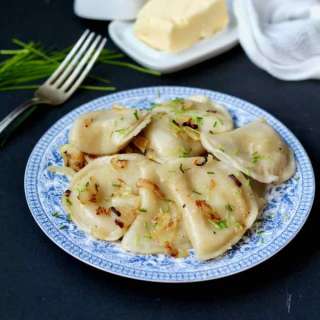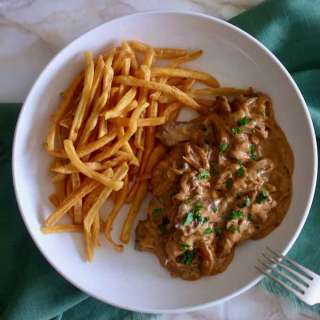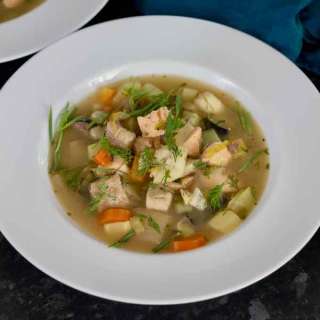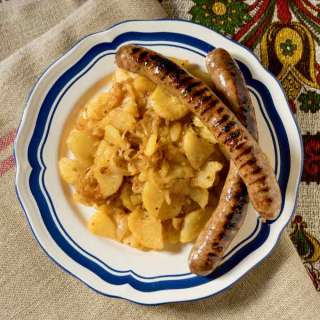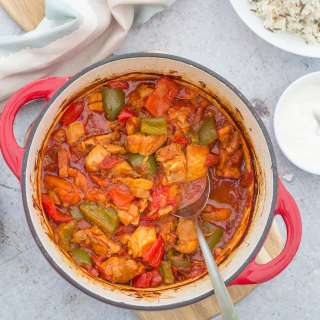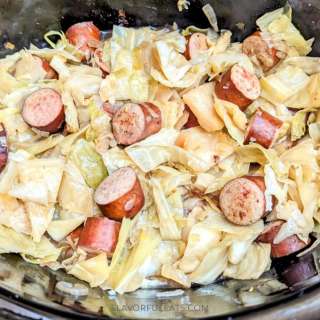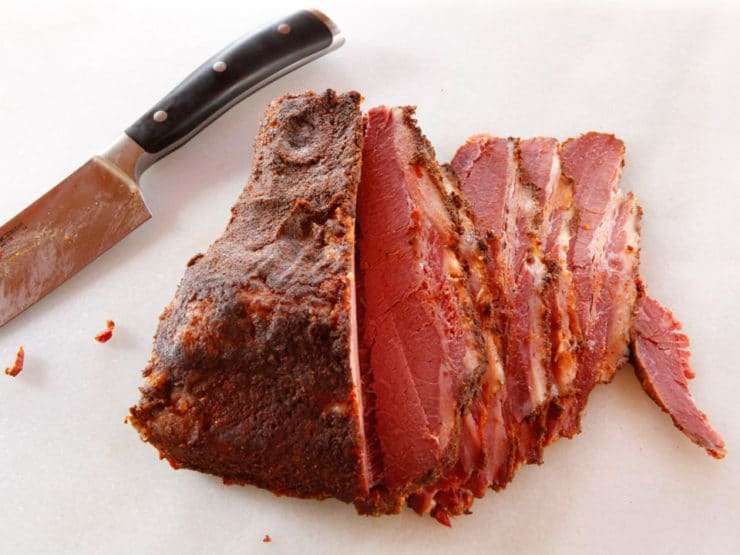
Homemade Pastrami
User Reviews
4.8
333 reviews
Excellent
-
Prep Time
30 mins
-
Cook Time
3 hrs
-
Brining Time
10 d
-
Total Time
10 d 3 hrs 30 mins
-
Servings
16 servings
-
Calories
243 kcal
-
Course
Main Course
-
Cuisine
Eastern European

Homemade Pastrami
Report
Learn to make delicious deli-quality pastrami at home with this simple and tasty recipe, adapted from The Artisan Jewish Deli at Home cookbook.
Share:
Ingredients
- 3 quarts water
- 3/4 cup Morton's coarse kosher salt (178 grams) OR 1 1/3 cup Diamond Crystal Kosher Salt (181 grams) - these two brands are NOT interchangeable, the same weight provides two very different cup measurements
- 2 teaspoons pink curing salt (12 grams) - Pink curing salt is also known as Prague Mix #1, Instacure #1 or Curing Salt #1 - NOT Himalayan pink salt. See safety note below.
- 1 cup granulated sugar
- 2 tablespoons pickling spice
- 1 tablespoon whole coriander seeds
- 1 tablespoon whole yellow mustard seeds
- 4 cloves garlic (minced)
- 5 pounds beef brisket
Spice Rub Ingredients
- 1/4 cup ground coriander
- 2 tablespoons freshly ground black pepper
- 2 tablespoons smoked paprika
Instructions
- To make the brine, fill a medium to large stockpot with 3 quarts water. Add the kosher and pink salts, granulated sugar, pickling spice, coriander and mustard seeds, and garlic. Bring to a boil over high heat, stirring often to fully dissolve the salt and sugar in the water. Immediately remove the pot from the heat once the brine boils.Add 3 quarts ice cold water to a 2-gallon or larger food-safe container that will fit in your refrigerator (you can also use a strong sealing 2-gallon marination bag - double bag for extra insurance). Pour the brine into the container and place it uncovered in the refrigerator until completely cool. You can also divide the brine evenly between two separate containers so that it will fit better in the refrigerator.
- Trim the fat from the brisket until the fat layer is about 1/4 inch thick.
- If necessary, cut the brisket in half so that it will fit into your container(s).
- Submerge the brisket in the cooled brine.Allow the brisket to brine in the refrigerator for 10 to 12 days, flipping it daily top to bottom and stirring the brine. Make sure that if any of the brisket sides are touching one another you regularly turn them away from each other to expose all of the sides to the brine.
- To cook the brisket, pour 4 cups water into the bottom of a 12 by 15 inch roasting pan. Set a rack inside the pan and place the brisket on the rack, fatty side down.
- To make the spice rub, mix together the coriander, pepper and paprika in a small bowl. Evenly rub 1/4 cup of the mixture onto the top of the brisket. Then flip the brisket and rub the remaining spice mixture onto the fatty side. Allow the brisket to come to room temperature, about 2 hours.
- Preheat the oven to 300 degrees with a rack low enough to fit the pan holding the brisket. Tightly cover the brisket and pan with a double layer of aluminum foil.
- Bake until the meat reaches an internal temperature of 200 degrees, about 1 hour per pound or 5 hours total. Start checking internal temp at 3 hours and periodically every 20-30 minutes or so to avoid overcooking.
- Without trimming the fat, carve the pastrami into 1/4 inch thick slices, or cut as thin as possible without the meat falling apart. Keep tightly wrapped, or in a sealed container in the fridge, for up to 1 week, or in the freezer for up to 6 months.
- SAFETY NOTE: handle the pink curing salt with care and keep it out of reach of children. It is used in pastrami and other cured meats to kill bacteria, prevent botulism and add flavor. However it is extremely toxic if ingested directly; in fact, it's colored pink to prevent people from mistaking it for regular salt. When used with care in recipes like this, it is very safe and necessary for proper flavor and food safety. That said, you should know the risks and keep the curing salt properly labeled and out of the reach of children.
Notes
- Adapted from The Artisan Jewish Deli at Home
- You will also need: large stockpot, 2 gallon container with lid or two 1 gallon containers, 12 by 15 inch roasting pan with rack
- Notes on this recipe adaptation: Originally this recipe was posted, as it was published, in "The Artisan Jewish Deli at Home" cookbook. After hearing feedback on the amount of curing salt called for in the recipe, I wanted to dig deeper. I reached out to my friend, Professor Ken Albala, a food history professor at the University of the Pacific. Ken cures meat regularly, and understands better than I do the inner workings of meat curing. I had him re-develop this recipe to include far less curing salt, while still capturing a delicious pastrami flavor. In Ken's development process, he also cut the honey and brown sugar in the original recipe to better balance the flavors. Ken's curing process takes longer than in the original recipe, so you'll need a bit of patience -- but it requires far less curing salt, and still achieves an excellent flavor profile. It is worth the wait.
- Adjust Total Servings Note: It is not recommended to adjust servings for this recipe. Please make it exactly as written and measure ingredients carefully.
- Regarding Nutritional Information: The recipe system on my site uses ingredients and number of servings to calculate the nutritional totals. Because the brine here contains a lot of kosher salt, it's interpreting that as sodium in the recipe... but most of the brine is washed away before cooking, meaning most of the salt is washed away as well. I am not a nutritionist, and unfortunately do not know how much sodium is actually absorbed by this particular recipe. However, pastrami is salty (even without the brine). Safe to say, if you're avoiding sodium, this is probably not the right recipe for you.
Nutrition Information
Show Details
Calories
243kcal
(12%)
Carbohydrates
27g
(9%)
Protein
18g
(36%)
Fat
6g
(9%)
Saturated Fat
2g
(10%)
Cholesterol
52mg
(17%)
Sodium
7161mg
(298%)
Potassium
505mg
(14%)
Fiber
1g
(4%)
Sugar
23g
(46%)
Vitamin A
655IU
(13%)
Vitamin C
21.5mg
(24%)
Calcium
81mg
(8%)
Iron
3.7mg
(21%)
Nutrition Facts
Serving: 16servings
Amount Per Serving
Calories 243 kcal
% Daily Value*
| Calories | 243kcal | 12% |
| Carbohydrates | 27g | 9% |
| Protein | 18g | 36% |
| Fat | 6g | 9% |
| Saturated Fat | 2g | 10% |
| Cholesterol | 52mg | 17% |
| Sodium | 7161mg | 298% |
| Potassium | 505mg | 11% |
| Fiber | 1g | 4% |
| Sugar | 23g | 46% |
| Vitamin A | 655IU | 13% |
| Vitamin C | 21.5mg | 24% |
| Calcium | 81mg | 8% |
| Iron | 3.7mg | 21% |
* Percent Daily Values are based on a 2,000 calorie diet.
Genuine Reviews
User Reviews
Overall Rating
4.8
333 reviews
Excellent
Other Recipes
